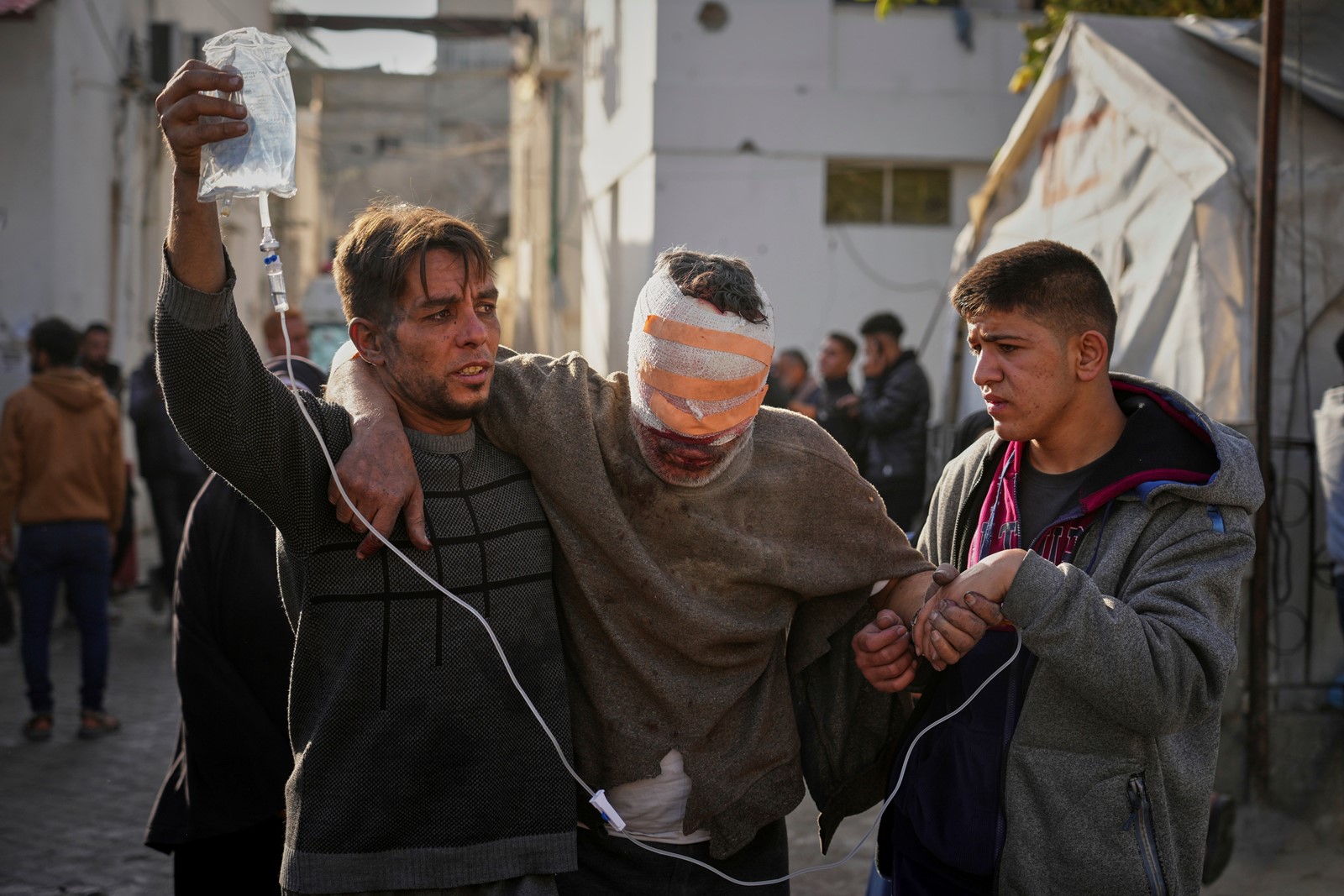
DEIR AL-BALAH, Gaza Strip — Israel launched airstrikes across the Gaza Strip early Tuesday that killed more than 400 Palestinians, local health officials said, shattering a ceasefire in place since January as it vowed to force Hamas to release more hostages and relinquish control of the territory.
Prime Minister Benjamin Netanyahu ordered the strikes after Hamas refused Israeli demands to free half of the remaining hostages as a precondition for extending the ceasefire. Israel’s deadliest bombardment of the territory in the 17-month war killed mostly women and children, according to the Gaza Health Ministry.
Netanyahu said the attack was “only the beginning” and that Israel would press ahead until it achieves all of its war aims — destroying Hamas and freeing all hostages held by the militant group.
All further ceasefire negotiations will take place “under fire,” he said in a statement aired on national television. The White House said it had been consulted and voiced support for Israel’s actions.
The Israeli military ordered people to evacuate eastern Gaza and head toward the center of the territory, indicating that Israel could soon launch renewed ground operations. The new campaign comes as aid groups warn supplies are running out two weeks after Israel cut off all food, medicine, fuel and other goods to Gaza’s 2 million Palestinians.
The pre-dawn barrage across Gaza struck homes and shelters and set a tent camp ablaze as families slept or prepared the “sohour,” the meal Muslims eat before they start the daily fast in the holy month of Ramadan. In Gaza City, Omar Greygaa said that after the strikes, he ran out to help survivors in a nearby stricken building.
“In every room I found the dead. ... I finish in one place and go to another, and I find more dead,” he said. “I don’t know if we’re in a state of war or truce.”
The attack could signal the full resumption of a war that has already killed tens of thousands of Palestinians and caused widespread destruction across Gaza. It also raised concerns about the fate of the roughly two dozen hostages held by Hamas who are believed to still be alive.
A senior Hamas official said Netanyahu’s decision to return to war amounts to a “death sentence” for the remaining hostages. Izzat al-Risheq accused Netanyahu of launching the strikes to save his far-right governing coalition.
There were no reports of any attacks by Hamas several hours after the bombardment.
But Yemen’s Houthi rebels fired rockets toward Israel for the first time since the ceasefire began. The volley set off sirens in Israel’s southern Negev desert but was intercepted before it reached the country’s territory, the military said. The U.S. over the weekend launched deadly strikes against the Iranian-backed Houthis.
Israel’s return to a military campaign came as Netanyahu faces mounting domestic pressure, with mass protests planned over his handling of the hostage crisis and his decision to fire the head of Israel’s internal security agency.
The strikes appeared to give Netanyahu a political boost.
A far-right party led by Itamar Ben-Gvir that had bolted the government over the ceasefire announced Tuesday it was rejoining.
The main group representing families of the hostages accused the government of “deliberately dismantling” the ceasefire. Thousands of Israelis packed a Tel Aviv square Tuesday evening to protest Netanyahu’s intention to fire the country’s domestic security chief and demand the government to resume negotiations for a hostage deal.
“Today Netanyahu did not open the gates of hell on Hamas. He opened the gates of hell on our loved ones,” said Einav Zangauker, whose son is among the hostages.
After two months of relative calm during the ceasefire, stunned Palestinians found themselves once again digging loved ones out of rubble.


 PREVIOUS ARTICLE
PREVIOUS ARTICLE
